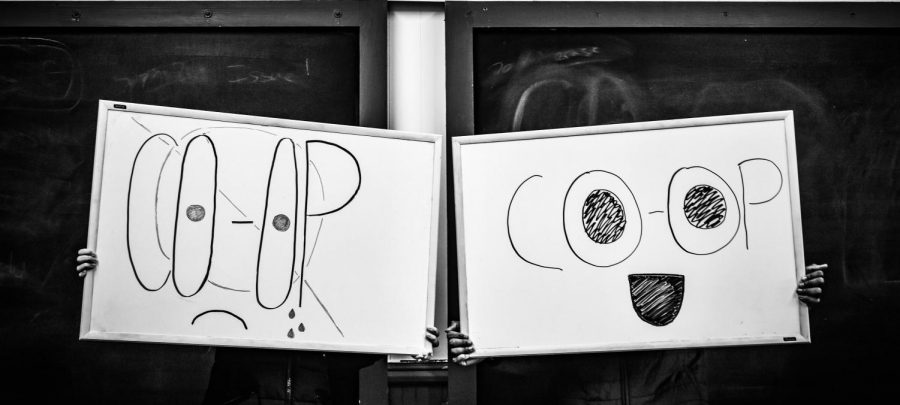Co-op raises on-campus equal opportunity employment concerns
December 2, 2018
Students at Lakeland for the Cooperative Education program receive prioritization over other students for on-campus employment. Associate Vice President for Cooperative Education Jess Lambrecht responded to student qualms.
“It has been overwhelming for staff and for students because they realized there is a flaw in the system,” sophomore Ben Miller said. “It seems like unfair employment opportunity.”
Miller, who inquired with the supervisors for the positions of Game Manager and Mart Cashier, was upset after not being able to secure a job. “I got an email in the thread,” Miller explained. “It was Jess Lambrecht. It said ‘you would have to apply, but there’s a bunch of Co-op students that are on the waitlist and will probably get first priority over you.’”
128 freshmen are part of the Co-op program, which was introduced by President David Black as an opportunity for students to work professionally while in school. “The best way to support a freshman is to make sure they’re working an on-campus position versus going off campus,” Lambrecht said. “We want them to develop an affinity for the institution, mentors and connections with various departments and feel like they belong here.”
Lambrecht acknowledged the concern that Miller had. “The challenge for our upper-class students is they could feel like they don’t have access to those on-campus positions as easily,” she said. She added that all students who apply are still considered for jobs and listing. “While some students may feel like they do not get equal employment opportunity, that’s really not the case.”
Lambrecht feels that upperclassmen should focus on off-campus jobs. “A student may really love working for our coffee shop on campus, but when you make $8 an hour at 10 hours a week as a senior, that’s not going to help set you up for as much success as if we encourage and motivate you to go off campus for higher wage positions,” she said. “It’s more so the intention to help our upperclassmen find other opportunities that can pay easily from the $10 to $18 an hour range than having them continue to work in an on campus environment.”
Karson Brown, a student who has worked in the business office of the WAK building for over a year, is worried about the possibility of termination. “They are trying to get all the Co-op students first pick at jobs,” she said. “Whoever has a job right now won’t have that job soon because the Co-op kids come first.”
Brown made note of Lakeland’s transportation efforts for students with off-campus jobs. “Students services can provide easy access to jobs for the people that aren’t in the Co-op because they’re pretty much handing the on-campus jobs to the kids in Co-op. Then we’re stuck.”
Lambrecht also noticed this concern and hoped to inform students more about it: “Just because you get a job on campus, we can’t employ you for your entire schooling and feel like we provide students with enough training and development to effectively prepare you for the workplace.”
Lambrecht aims to aid students by giving them the opportunity to find door-opening jobs and new experience, “If you want to continue to develop a new skill, new interactions, new problem-solving abilities, then you have to keep changing your environment.” According to Lambrecht, these changes “open up more opportunities for our freshman.”
“We are not in the position to hire a student and maintain them for a year or four years,” Lambrecht said. “We have to segment out our departmental needs.”
Miller and Brown, who are both student athletes, felt that off-campus jobs conflicted with their schedule. “I can’t do an off-campus job anymore,” Miller said, referencing problems with the distance, academics and sports.
Lambrecht noted the academic, athletic and environmental challenges that students are facing that may point them towards on-campus jobs. “I’m trying to take into consideration those challenges and still work with the student,” Still, she noted that she can’t make every problem go away. “You’re going to have to be creative in where and when you work.”
Lambrecht summed it all up with a quote from President Black: “’Births are messy.’ This is not something we just invented yesterday and we implement one step and its easy. There’s a lot of integral steps that we have to map out to ensure that we have the best experience possible for students.”


